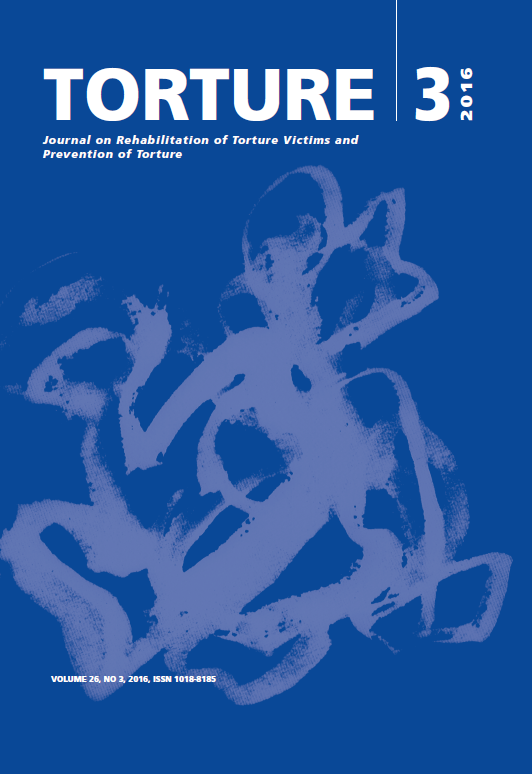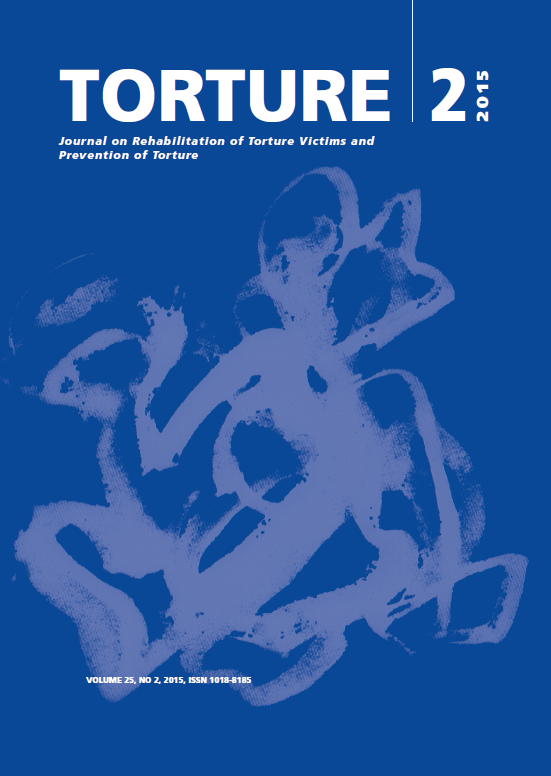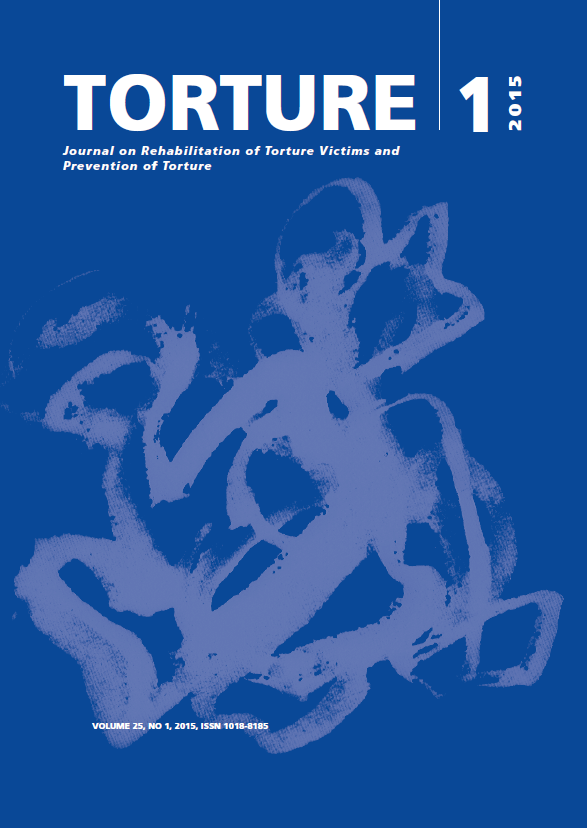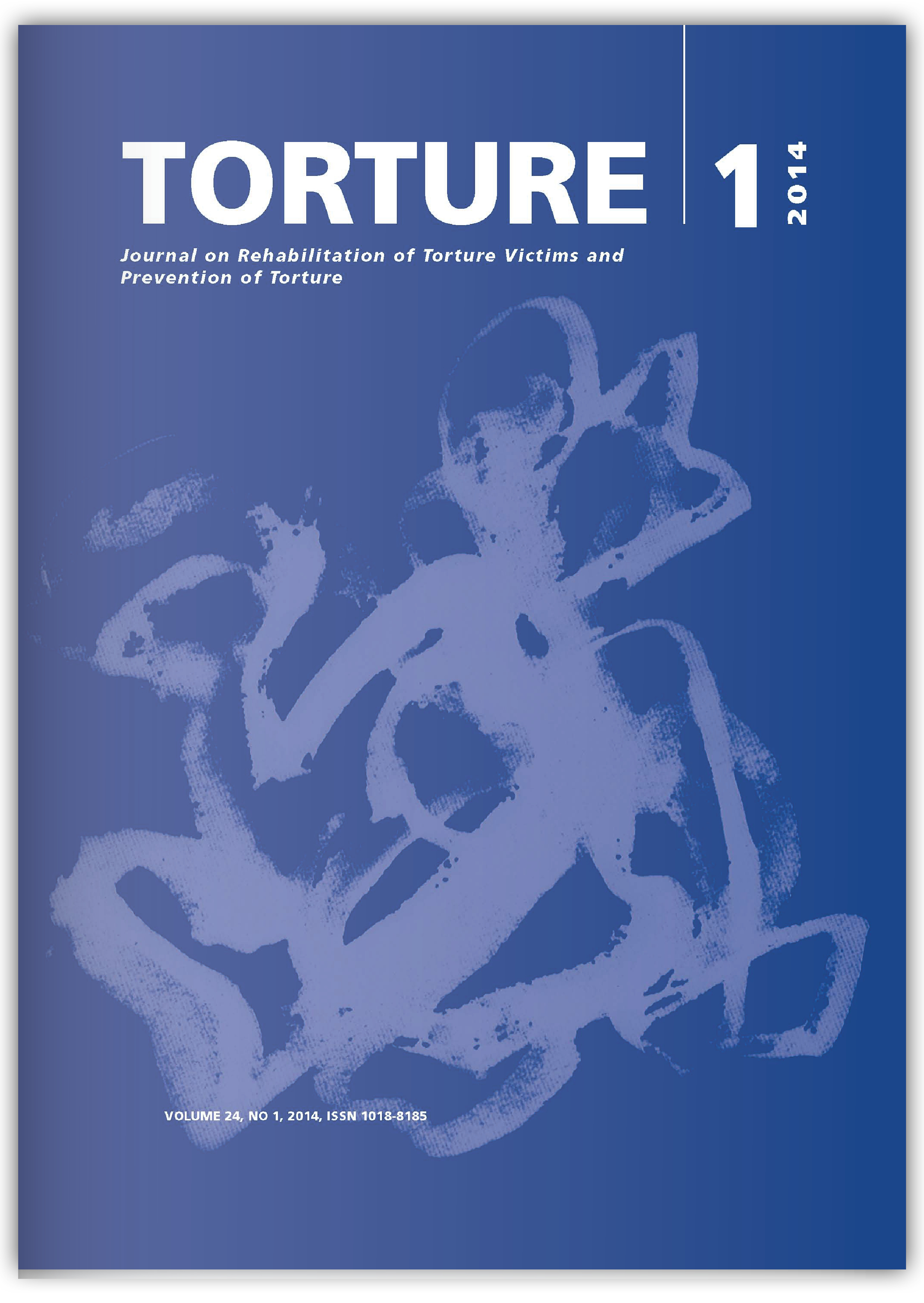Archives - Page 2
-
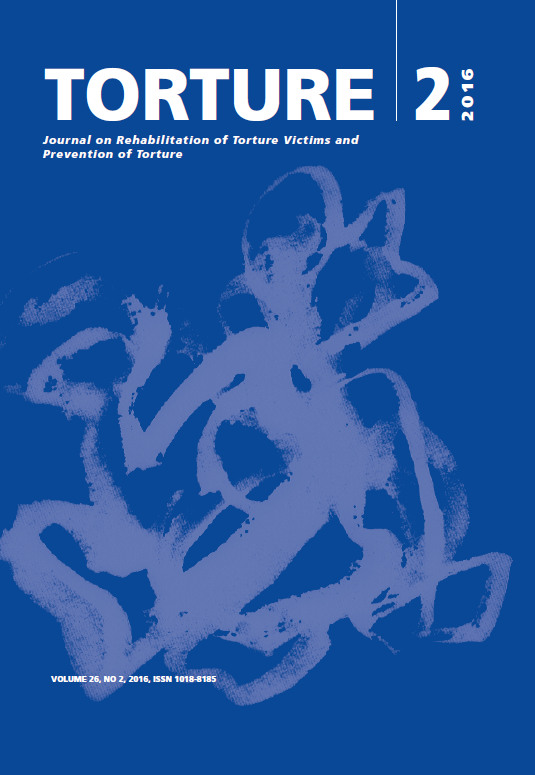
Torture Journal: Journal on Rehabilitation of Torture Victims and Prevention of Torture
Vol. 26 No. 2 (2016)Long-running themes and previous research are given new life in this issue, Lilla Hárdi's last as Editor in Chief.
-
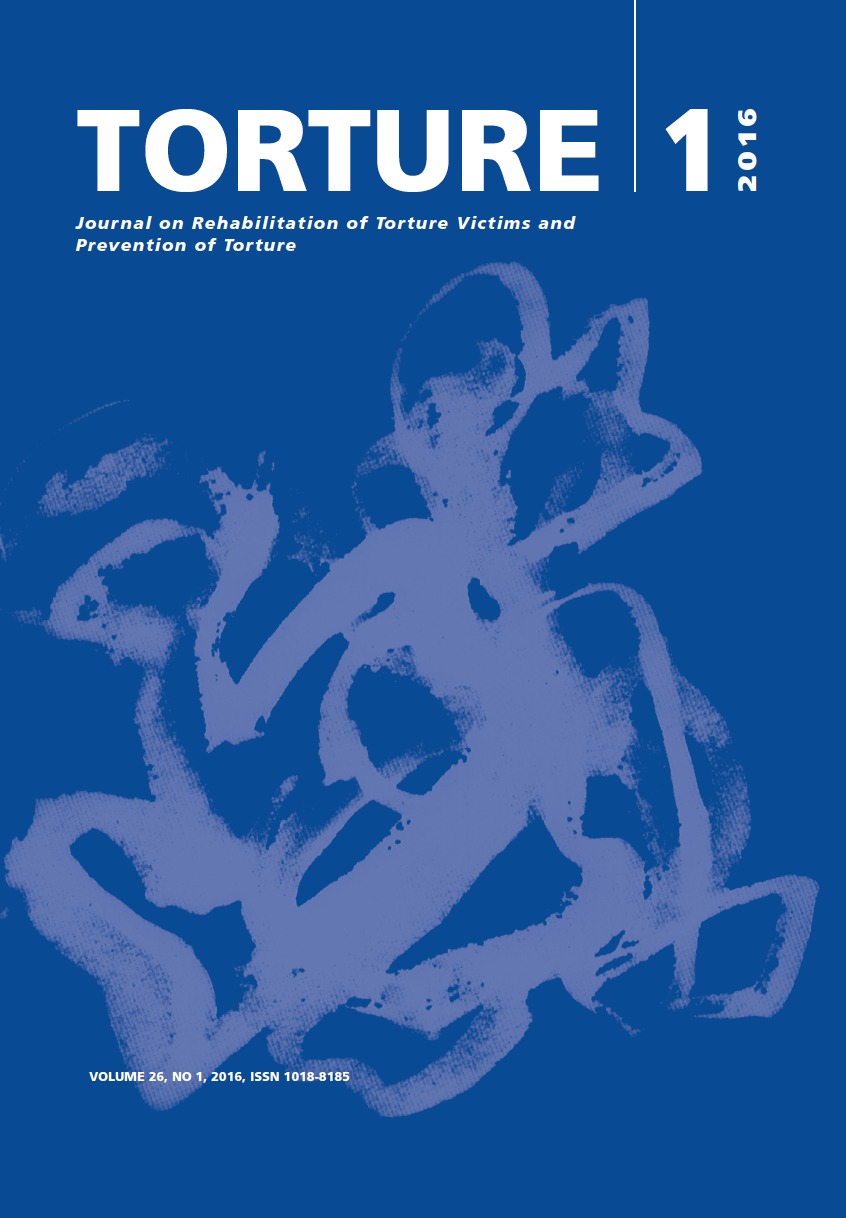
Torture Journal: Journal on Rehabilitation of Torture Victims and Prevention of Torture
Vol. 26 No. 1 (2016)"In such a complex clinical landscape, influenced by a dizzying array of different social, psychological and environmental factors, how can a clinician know what treatment has the best outcome for a particular person or group? And, how can researchers identify areas and methods for research?"
Lilla Hárdi, MD, Editor in Chief
This issue of the Toture Journal grapples with these questions and others.
-
Torture Journal: Journal on Rehabilitation of Torture Victims and Prevention of Torture - Supplementum
Vol. 24 No. 2 (2014)Input description
Previous
26-32 of 32

